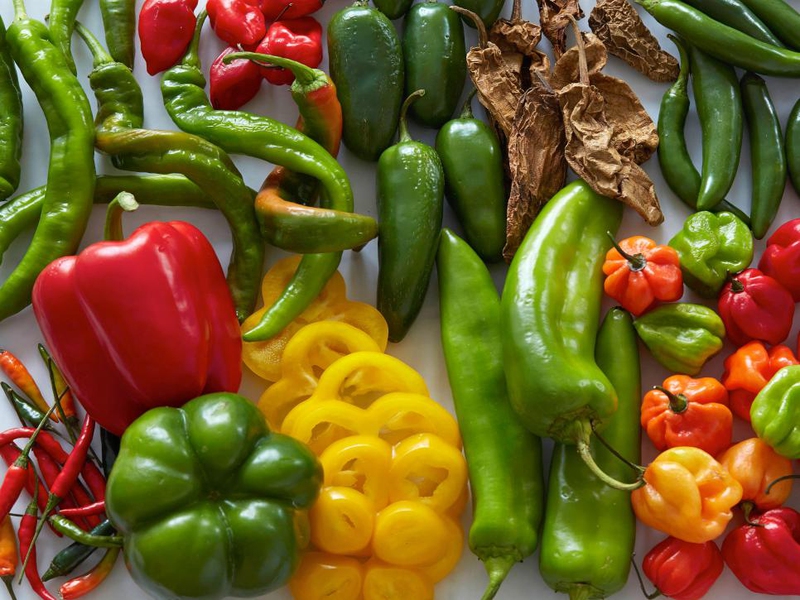Spicy foods can be a welcome to many individuals while it can also be something others try to avoid at all cost. While some people think the hotter the better, others will break out in a sweat and hot flashes with just the smell of chilies or hot peppers. Whether you prefer the spicy flavors or want to keep your dishes mild, you might have wondered what the effects of eating spicy food can be on your health. Well, it can have both positive and negative effects that you may consider before including it in your diet.

Positive Effects of Spicy Food
Boost the metabolism
Spicy foods contain capsaicin which can give your metabolism a boost, increase the body temperature and speed up the heart rate, which can all cause the body to burn more calories.
Feeling full
Eating a spicy appetizer can result in eating
Healthy heart
Eating spicy foods can also be good for you heart. Capsaicin has
Reduces cholesterol
People who have high cholesterol levels can benefit greatly from eating spicy foods. Eating foods that are spicy can help lower cholesterol levels because of the capsaicin it contains.
Boost to the immune system
Hot peppers are a great source of vitamin A and vitamin C which give the immune system a boost. You also get a dose of antibacterial properties which helps fight off bacteria and other germs that can cause colds and other sicknesses.
Aphrodisiac
Spicy foods can do more than heating up your main course. The capsaicin can also heat things up in the bedroom since it acts as a natural aphrodisiac.
Live a longer life
If you want to add years to your life, try to include two or three spicy dishes in your diet. Eating spicy foods can cause you to have a longer lifespan compared to individuals who stick with milder foods.
Sinus relief
Most people will notice the effects of eating spicy foods most when their nose begins to run. Spicy foods can help clear the nasal passage which can give you relief during allergy and cold season.
Anti-inflammatory
Those who suffer from certain types of arthritis or other autoimmune issues may benefit from eating spicy foods. Capsaicin
Cancer prevention
Eating spicy foods can decrease your risk of developing tumors and can help protect against certain cancers like lung cancer. This is because the capsaicin contains anti-proliferation components which can protect the body from developing tumors
NOTE
While enjoying spicy food can have many benefits, you want to try to avoid eating too much of it in the later hours. Foods that are spicy can make it more difficult to get a good night's sleep because it can cause indigestion. If you can handle the heat of spicy foods, you may be reducing the hours of sleep each night. The capsaicin in most spicy foods can also have an effect on your body temperature which also can affect the amount of sleep you get.
Some other things to be aware of including:
Limit you spicy foods to just your main meals.
Try not to eat spicy and fried foods together as this can increase the acid secretion in your body.
To reduce the acid secretion caused by spicy foods, drink milk with your meal.
If you have trouble with your digestion after eating spicy foods, consider taking an antacid after you have eaten your meal as well as before you go to sleep.
Negative Effects of Spicy Food
Stomach irritation
Effects of eating spicy food can sometimes cause the stomach to become upset. Those with ulcers can also get more irritation from eating spicy foods.
Chance of heartburn
Heartburn is a common discomfort for many when they eat spicy foods. While this is more common for those who eat too
Digestive issues
Diarrhea can be an unfortunate side effect of eating spicy foods. Most spicy foods can cause the lining of the stomach to become irritated, which results in diarrhea. They can also act as a laxative which will give you the urge to go shortly after you finish your spicy meal.
Sweating
While you may be enjoying your favorite spicy dish, you might not enjoy the excess sweat it causes. Since spicy foods cause the body temperature to rise, you may also see an increase in the amount you sweat.
Affect the taste buds
Spices and peppers can give your foods an extra boost in flavor, but this can have a negative effect on your taste buds. When eating spicy foods on a regular basis, you will dull your taste buds which results in not being able to enjoy the full flavors of your dishes spicy or not.
Skin irritations
One of the most common effects of eating spicy foods is that it can cause irritation to the mouth, as well as to the skin. Many people, especially those with sensitive skin, can also feel their skin burning after touching a hot pepper.
Blood thinner
If you are on a blood thinner medication, then you might want to avoid eating spicy foods. Capsaicins can act as a blood thinner which can cause the blood to thin too much.
Hemorrhoids
While spicy foods may not cause hemorrhoids, it can seriously irritate them. As the foods pass through your body, the capsaicin, where all the heat and spice comes from, doesn't break down through the digestive process. This can be incredibly painful for those who have hemorrhoids already.
Eye irritation
Just as hot pepper can irritate the skin, spicy foods can seriously irritate the eyes. For some, just the smell of certain spicy foods can cause the eyes to water and itch, and accidentally touch your eyes after you have handled something spicy can cause significant pain.
View All Comments /Add Comment